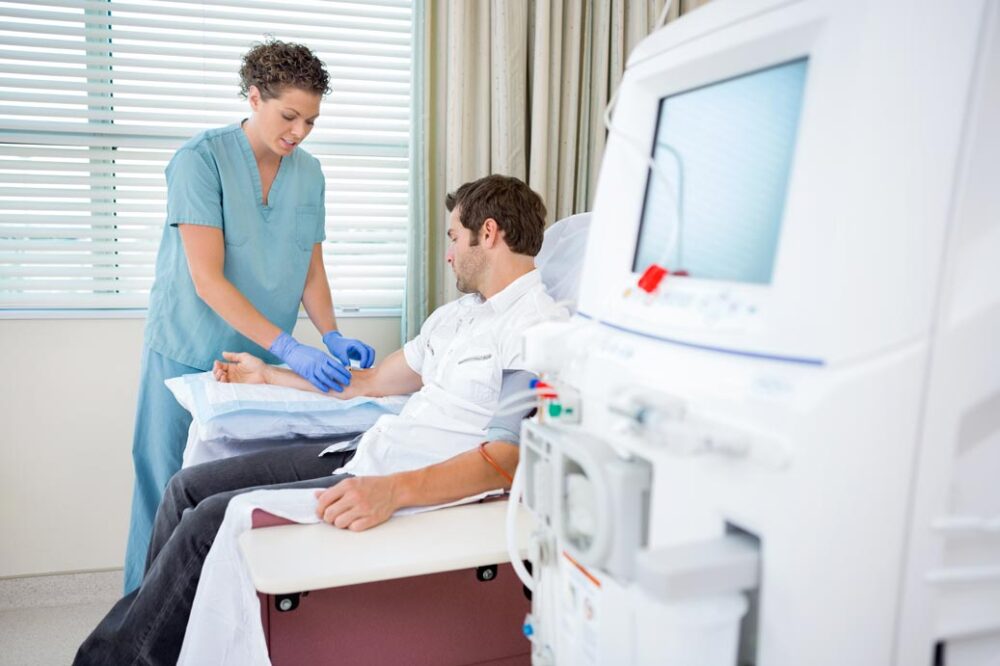Advertisment
Study offers new hope for relieving chronic pain in dialysis patients

People undergoing hemodialysis treatment for kidney failure often experience chronic pain related to their condition, but it can be difficult to manage with opioid medication and other conventional treatments.
A new study published in JAMA Internal Medicine finds that offering these patients pain coping skills training (PCST) significantly reduced their suffering and improved their quality of life.
“This is particularly important for these patients, since the therapeutic choices for pain management are limited and the use of opioids has been shown to be associated with poor outcomes in this group.”
The randomized controlled study enrolled 643 participants from 16 medical centers and 103 dialysis clinics in The HOPE Consortium, an ongoing multi-site study exploring new treatments for dialysis patients.
Twenty-two New Mexicans – many of them Native American – participated in UNM’s arm of the study, Unruh said.
“New Mexico played a large role in the trial,” he said. “We served as the primary outcomes measurement core and New Mexico had a supplement to recruit from rural clinics with a focus on our underrepresented populations.”
Multiple factors likely contribute to dialysis-related pain. Patients tend to be older and living with arthritis, diabetes, peripheral neuropathy and back pain, he said.
“Dialysis by itself may contribute, either directly or indirectly, like having uremic toxins in your bloodstream,” Unruh said. “The process of going to dialysis and having a needle stuck in your arm may be challenging for some people to deal with.”
Doctors face challenges in treating dialysis-related pain because patients have kidney failure. “We are kind of loathe to use nonsteroidal anti-inflammatory agents, and in general we avoid opioids,” he said. “Certain opioids are better than others, but a lot of them are cleared in part from the kidneys. You kind of have your hands tied.”
Half of the study participants were randomly assigned to receive the PCST intervention, while the other was assigned to receive usual care. The PCST consisted of 45-minute coaching sessions by counselors delivered via phone or video for 12 weeks, followed by an additional 12 weeks of daily automated interactive voice response sessions to monitor the participants’ progress.
The content included modules addressing pain-related anxiety, stress and sleep difficulties along with CBT, mindfulness, pain education, experiential training, with the overarching goal of enhancing self-efficacy for applying the acquired coping skills.
“It’s like a recipe with 12 components,” Unruh said. “You talk about strategies, and focus on reframing and limiting catastrophizing. You’ll do some mindfulness meditation, and then you’ll talk about addressing, anxiety and depression and strategies to prevent backsliding.”
The study found that patients who underwent the PCST intervention showed modest improvements in the extent to which pain interfered with their daily activities, he said. “The relevance would be that, if I’m seeing someone in a clinic who has chronic pain, rather than prescribing an opioid, I could refer them to a psychologist who practices CBT, and they could kind of adopt it.”
The study is an example of how research can lead to improvements in clinical care, Unruh said. “It is great to see these results in press and offer alternatives other than opioids to our patients on dialysis for treatment of chronic pain.”





